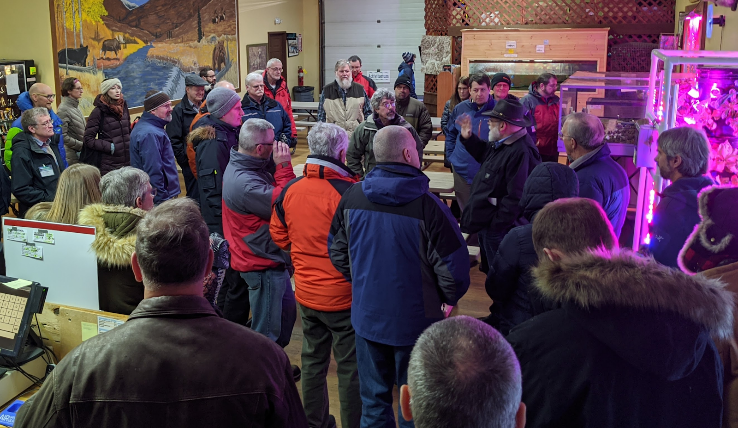Arctic Thermal Energy System Experts Discuss Major Threats and Hazards

ACEP, the Cold Climate Housing Research Center and Chena Hot Springs Resort partnered with the U.S. Army Engineering Research and Development Center's Construction Engineering Research Laboratory and Cold Regions Research and Engineering Laboratory to host a forum titled “Thermal Energy Systems Resilience in Cold/Arctic Climates.”
The forum provided an opportunity for over 60 national and international participants with backgrounds in cold-climate building construction and energy-efficiency measures to exchange knowledge and best practices. Major threats and hazards specific to the resilience of thermal energy systems serving mission-critical facilities in the Arctic were discussed as part of the forum.
Forum topics included building envelope designs, heating and ventilation, air-conditioning system designs, vapor barriers, air- and ground-source heat pumps, energy generation, energy storage, and energy delivery strategies.
This effort was part of ACEP's U.S. Army ERDC project, “Secure and Resilient Power Generation in Cold Region Environments.” Working in collaboration with CRREL and CERL staff, researchers from UAF and partners at CCHRC are supporting an assessment of new energy power options and thermal energy resilience at Fort Wainwright, Fort Greely and the CRREL Permafrost Tunnel.
Chena Hot Springs Resort owner Bernie Karl leads a tour while explaining the importance of food independence and renewable energy systems during the Thermal Energy Systems Resilience in Cold/Arctic Climates forum. Photo by Dayne Broderson.


